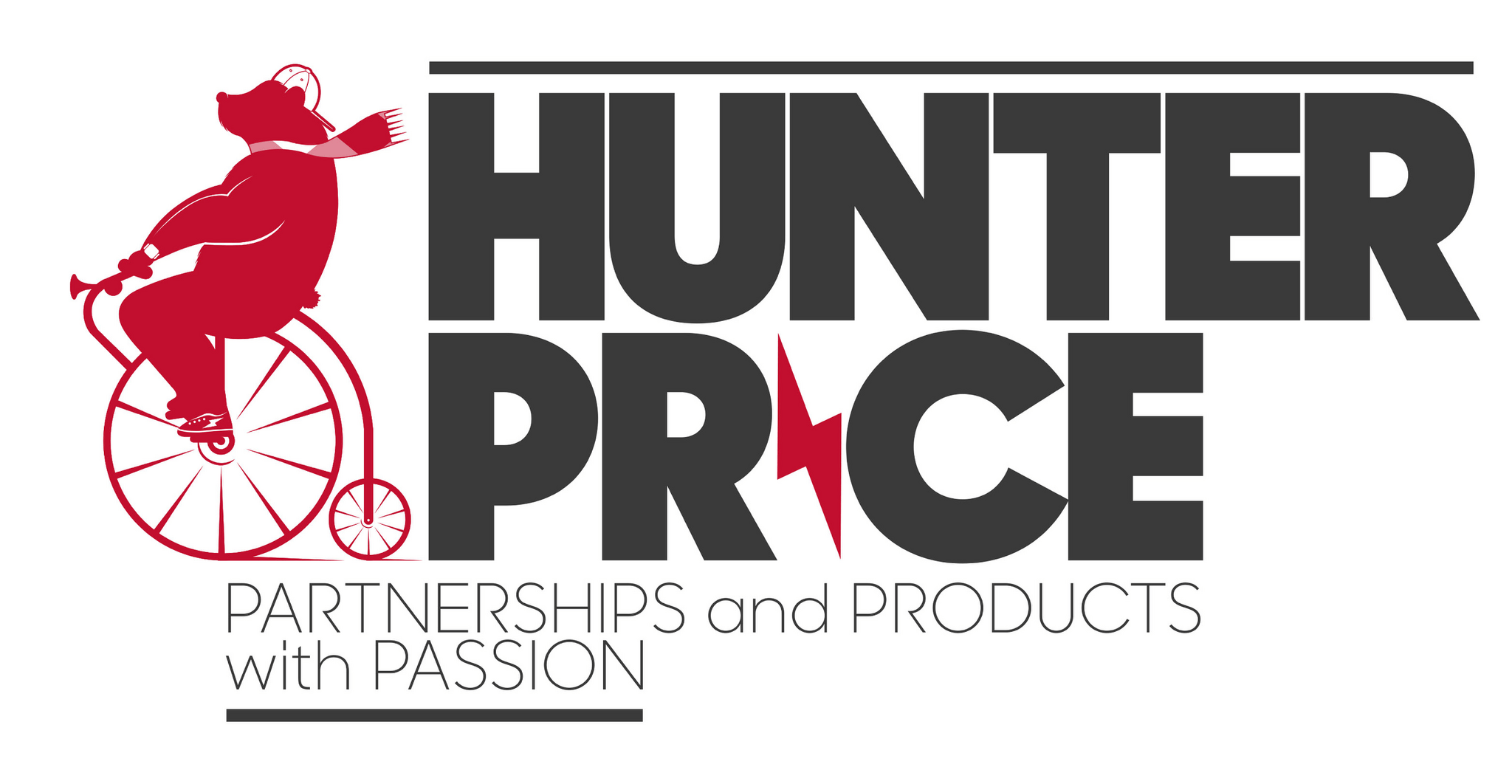Hunter Price: The Ultimate Guide To Discounts, Deals, And Shopping Strategies
Hunter price enthusiasts are always on the lookout for the best deals and discounts that can help them save money while shopping. Whether you're a seasoned bargain hunter or just starting your journey, understanding the strategies and techniques behind price hunting is essential to maximize savings. In this comprehensive guide, we will explore everything you need to know about price hunting, including tips, tools, and expert advice.
Price hunting has become a popular activity for millions of consumers worldwide. With the rise of online shopping and e-commerce platforms, people now have access to an endless array of products at their fingertips. However, with so many options available, it can be overwhelming to find the best deals. This is where hunter price strategies come into play, allowing you to navigate the market efficiently and make informed purchasing decisions.
In this article, we'll delve into the world of price hunting, covering everything from understanding the psychology behind discounts to utilizing advanced tools and techniques. By the end, you'll be equipped with the knowledge and skills to become a successful price hunter and save money on all your purchases. Let's get started!
Read also:Kim Kardashian Height And Weight A Comprehensive Guide
Table of Contents
- What is Hunter Price?
- Benefits of Price Hunting
- Price Hunting Strategies
- Tools for Price Hunting
- Psychology of Discounts
- Common Mistakes to Avoid
- Hunter Price Trends
- Case Studies
- Legal and Ethical Considerations
- Conclusion
What is Hunter Price?
The term "hunter price" refers to the practice of searching for the best deals and discounts when shopping, whether online or in-store. It involves using various strategies and tools to find products at the lowest possible price. Price hunters are individuals who actively seek out bargains, often spending time researching and comparing prices across multiple platforms to ensure they get the best value for their money.
Price hunting is not just about finding the cheapest option; it's also about understanding the quality, durability, and overall value of a product. This approach helps consumers make smarter purchasing decisions and avoid impulse buying, which can lead to unnecessary expenses.
Why is Price Hunting Important?
Price hunting is crucial in today's competitive market, where prices can fluctuate rapidly due to various factors such as supply and demand, seasonal sales, and economic conditions. By becoming a savvy price hunter, you can:
- Save money on everyday purchases.
- Maximize your budget and stretch your dollars further.
- Ensure you're getting the best value for your money.
Benefits of Price Hunting
Engaging in price hunting offers numerous advantages beyond just saving money. Here are some of the key benefits:
Financial Savings
The most obvious benefit of price hunting is the potential for significant financial savings. By comparing prices and waiting for sales or discounts, you can reduce the cost of your purchases considerably. Over time, these savings can add up, allowing you to allocate more money toward other important goals, such as saving for retirement or paying off debt.
Improved Decision-Making
Price hunting encourages consumers to think critically about their purchases. Instead of buying impulsively, price hunters take the time to research products, compare prices, and evaluate their options. This process leads to more informed and thoughtful decision-making, reducing the likelihood of buyer's remorse.
Read also:Esther Ulvaeus Ekengren A Rising Star In The World Of Entertainment
Access to Exclusive Deals
Many retailers offer exclusive deals and promotions that are only available to price-savvy shoppers. By staying informed about these opportunities, you can take advantage of limited-time offers and secure significant discounts on items you need or want.
Price Hunting Strategies
To become a successful price hunter, it's essential to adopt effective strategies that help you find the best deals. Here are some proven techniques:
1. Set Price Alerts
One of the most efficient ways to track price changes is by setting up price alerts for the products you're interested in. Many websites and apps allow you to receive notifications when the price of an item drops below a certain threshold. This ensures you're always aware of the latest deals and can act quickly when prices drop.
2. Use Price Comparison Tools
Price comparison tools are invaluable for price hunters. These platforms allow you to compare prices across multiple retailers, helping you identify the best deal available. Some popular price comparison websites include PriceGrabber, Shopzilla, and Google Shopping.
3. Timing Your Purchases
Understanding the timing of sales and discounts can significantly impact your ability to find great deals. For example, many retailers offer deep discounts during holiday seasons or clearance events. By planning your purchases around these periods, you can maximize your savings.
Tools for Price Hunting
In addition to strategies, there are several tools and resources available to assist price hunters in their quest for the best deals:
1. Browser Extensions
Browser extensions like Honey, CamelCamelCamel, and Wikibuy can automatically track prices and apply coupon codes at checkout, ensuring you always get the best price. These tools are easy to install and can save you time and money.
2. Mobile Apps
Mobile apps such as RetailMeNot, Ibotta, and Rakuten provide access to exclusive deals and cashback offers. By downloading and using these apps, you can take advantage of discounts while shopping both online and in-store.
Psychology of Discounts
Understanding the psychology behind discounts can give you an edge when price hunting. Retailers often use psychological tactics to make discounts appear more attractive, encouraging consumers to make impulse purchases. Here are some common techniques:
1. Anchoring Effect
Retailers frequently use the anchoring effect by displaying a high original price alongside a discounted price. This creates the perception of a significant savings, even if the actual discount is minimal.
2. Scarcity Principle
By creating a sense of urgency through limited-time offers or limited stock, retailers can persuade consumers to make quick decisions. As a price hunter, it's important to remain calm and evaluate these claims carefully before making a purchase.
Common Mistakes to Avoid
While price hunting can be highly rewarding, there are some common mistakes that can undermine your efforts. Here are a few to watch out for:
1. Overlooking Shipping Costs
Many consumers get excited about finding a great deal, only to be surprised by unexpected shipping costs. Always factor in shipping fees when comparing prices to ensure you're getting the best overall value.
2. Ignoring Return Policies
It's essential to familiarize yourself with a retailer's return policy before making a purchase. If you're dissatisfied with a product, you'll want to know your options for returning it without incurring additional costs.
Hunter Price Trends
As the retail landscape continues to evolve, new trends in price hunting are emerging. Here are some current trends to watch:
1. Artificial Intelligence and Machine Learning
AI and machine learning technologies are increasingly being used to analyze consumer behavior and predict price fluctuations. These advancements can help price hunters anticipate when prices will drop and make more informed purchasing decisions.
2. Social Media Influence
Social media platforms like Instagram and TikTok are becoming popular channels for discovering deals and discounts. Influencers and brand ambassadors often share exclusive codes and promotions with their followers, providing new opportunities for price hunters.
Case Studies
Examining real-world examples of successful price hunting can provide valuable insights and inspiration. Here are a couple of case studies:
Case Study 1: John's Electronics Purchase
John wanted to buy a new laptop but was determined to get the best deal possible. He set up price alerts, compared prices across multiple retailers, and waited for a major sale event. By timing his purchase perfectly, John saved over $200 on his desired laptop.
Case Study 2: Sarah's Fashion Finds
Sarah is an avid price hunter who specializes in finding deals on fashion items. She uses mobile apps to track prices and takes advantage of cashback offers. Over the past year, Sarah has saved hundreds of dollars on clothing and accessories while building a stylish wardrobe.
Legal and Ethical Considerations
While price hunting is a legitimate practice, it's important to be aware of legal and ethical considerations. Always ensure that you're following the rules and regulations of the retailers you're shopping with. Additionally, consider the impact of your purchasing decisions on local businesses and the environment.
Conclusion
In conclusion, price hunting is a valuable skill that can help you save money and make smarter purchasing decisions. By adopting effective strategies, utilizing the right tools, and staying informed about trends and psychology, you can become a successful price hunter. Remember to avoid common mistakes and consider the legal and ethical implications of your actions.
We encourage you to take action by implementing the tips and techniques discussed in this article. Share your experiences and success stories in the comments below, and don't forget to explore other articles on our site for more valuable insights into personal finance and shopping strategies.
References:
- Statista. (2023). E-commerce sales statistics.
- Forbes. (2023). The psychology of discounting.
- Harvard Business Review. (2022). The future of retail.


